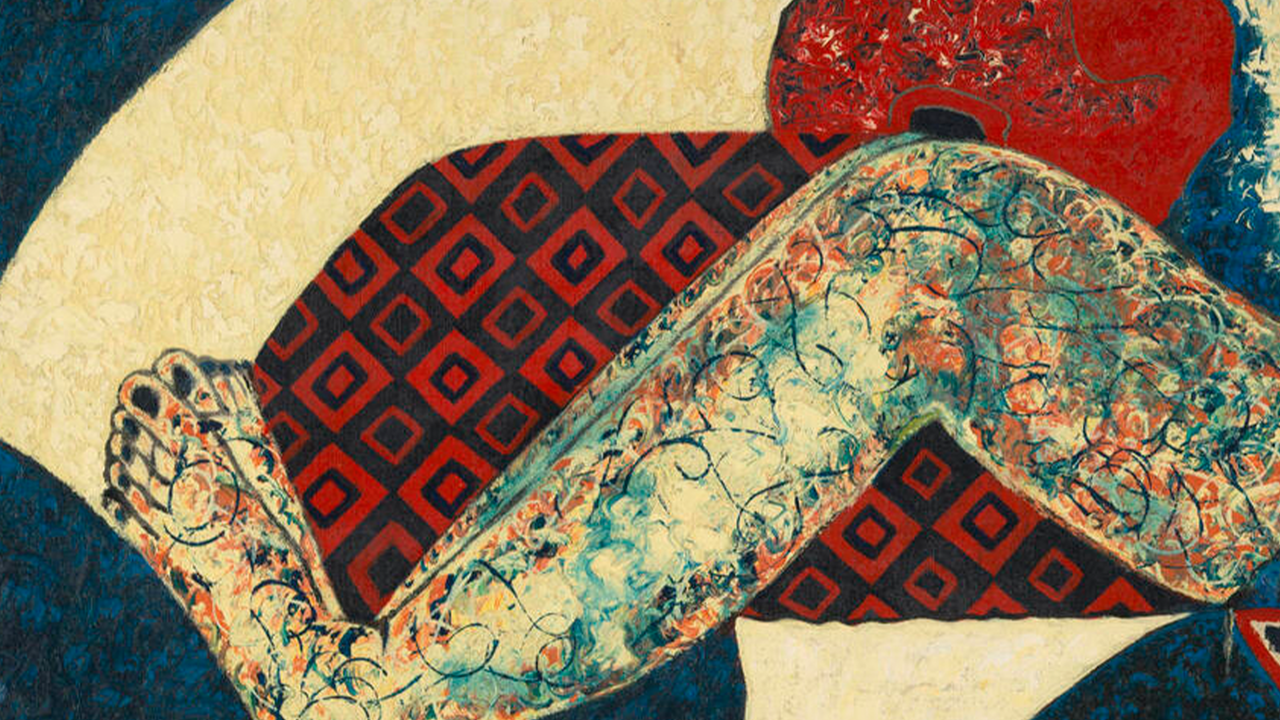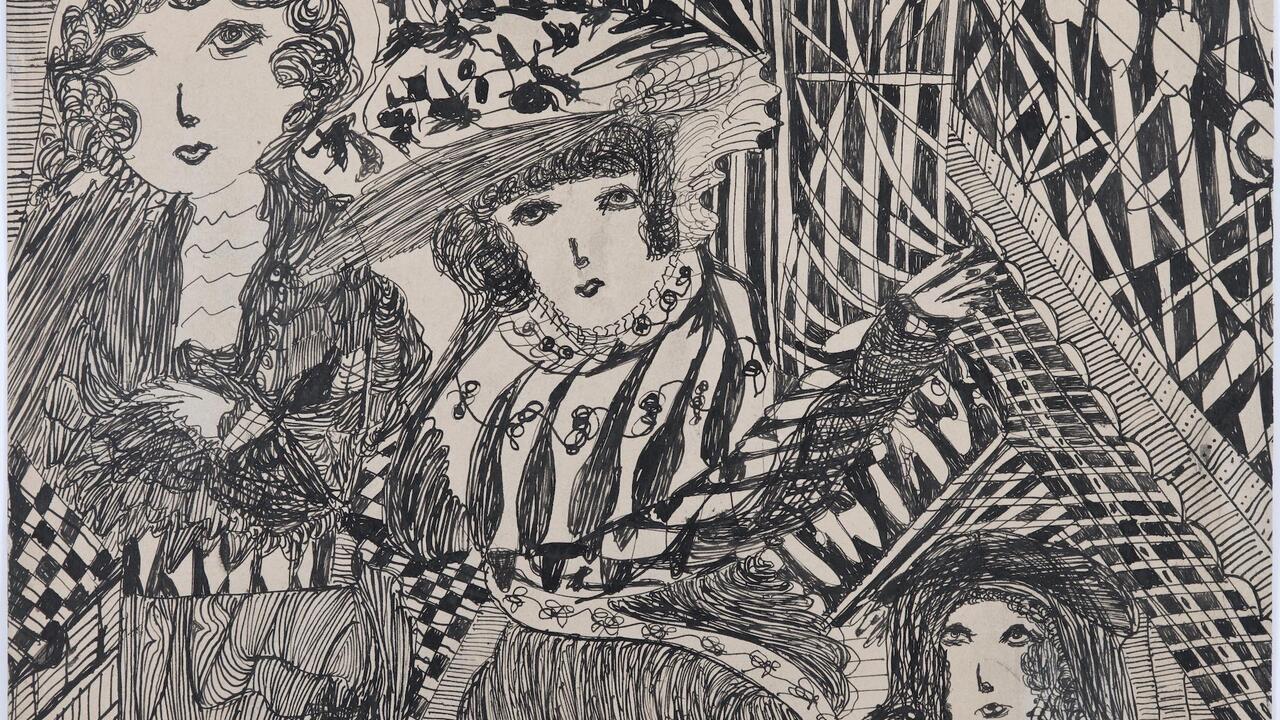Questionnaire: Henry Louis Gates, Jr.
The acclaimed US critic and filmmaker explains how early experiences at the Smithsonian profoundly shaped his life
The acclaimed US critic and filmmaker explains how early experiences at the Smithsonian profoundly shaped his life

How would you describe what you do?
Teaching, writing, filmmaking. Teaching deeply intelligent, highly motivated students at Harvard about African-American and African literature and culture. Writing about the African-American experience and ideas of race in Western culture. And, miracle of miracles, being able to make documentary films. In 1970, as an undergraduate at Yale, I happened upon Civilisation; a few years later I watched Jacob Bronowski’s The Ascent of Man. They were transformative. I thought: Wouldn’t it be great to be in front of a camera introducing the world to the wonders of African civilization or African-American history and culture?
You sat for Kerry James Marshall’s first ever commissioned portrait, now in the Fitzwilliam Museum. Who do you see when you look at the painting?
Kerry represented me as a thoughtful person, which was a surprise. I generally have a genial, upbeat nature. I asked him about that: I said, most people would have been tempted to paint me with a smile on my face. He said he wanted people to know that I was a thinker, that he wanted to immortalize me for the quality of my thought. I was deeply touched by that.
You host PBS’s Finding Your Roots – which of your forebears would you like to meet if you could?
Jane Gates, my great-great-grandmother. It was seeing her photograph when I was nine years old that gave birth to my passion for genealogy. She had five children by a white man and took the secret of his identity to her grave. We’ve only discovered the name of our mysterious, white, Irish great-great-grandfather this year. It’s amazing.
And if you could meet one artist from history?
Picasso. I’d like to ask him why he decided to revise the faces of the women in Les Demoiselles d’Avignon [1907], to include the presence of Africa, the African masks.
What makes someone an artist?
An understanding that form has a meaning, independent of the content. You can’t be a great saxophonist by studying Charlie Parker’s biography, or the physiological effects of heroin, or the socioeconomics of the ghetto. You have to study the saxophone. You have to learn scales. It’s about the form of music.
Which book have you reread more than any other?
Can it be a tie? Moby-Dick, The Soul of Black Folks by W.E.B. Du Bois, Cane by Jean Toomer and Their Eyes Were Watching God by Zora Neale Hurston. Then, one of the greatest novels of all time, The Master of Go by Yasunari Kawabata. I read it as a graduate student at Cambridge and even joined the Go Society as a result.
What’s your favourite museum in the world?
The Smithsonian. It was the first museum I ever visited, when I was ten years old. It was better than Walt Disney’s Fantasyland, man. I read an article some years ago in the Washington Post that asked inner-city Black kids to name things that are ‘white’. On the list were ‘getting straight As’, ‘speaking standard English’ and ‘visiting the Smithsonian’. Each of those answers broke my heart.
The National Museum of African American History and Culture has a special place in my heart. To see Black people honoured on the Mall in the shadow of the Washington Monument ... If Du Bois or Carter G. Woodson came back from the grave, they wouldn’t believe that America had devoted all those resources to honouring the contributions of African-Americans to American history and culture. I can’t leave out the Whitney and the Studio Museum. I’m on their boards!
How has your work brought you to the UK over the years?
Making documentaries, giving lectures. I always made a pilgrimage to [cultural theorist] Stuart and [historian] Catherine Hall’s house to see them. He and Wole Soyinka had never met, so I set up a dinner in an Italian restaurant in Mayfair. The restaurant prided itself on using no garlic, which Soyinka thought was a scandal. He wanted to leave. Seeing those two geniuses compete for airtime was quite something.
And I love Cambridge. The University of Cambridge brought me to the party. It introduced me to Soyinka and Kwame Anthony Appiah. If I hadn’t gotten that Mellon fellowship to go to Clare College, I’d be a doctor. Imagine how bored I’d be.
Which artwork do you try to see whenever you’re in London?
Portraits of the writer Ignatius Sancho – there’s a miniature in the National Portrait Gallery. When I see him, I think about what it would have been like to be a sensitive Black man or woman like Sancho, like Phillis Wheatley, like Angelo Soliman in Vienna, in the 18th century, when so much was at stake: what you wrote, what you said, how you comported yourself.
Did you collect anything as a child?
Marbles. When my grandfather died, he left one of those burlap sacks from a bank full of these beautiful old marbles. I still have them somewhere.
And do you collect anything now?
I started with African art – I bought my first three pieces in Dar es Salaam when I was 19. Then I expanded to African-American art, particularly Romare Bearden, Jacob Lawrence, Carrie Mae Weems, and later to Afro-Cuban artists such as Juan Roberto Diago and René Peña. I used to browse books on Madison Avenue with Bearden and his best friend, the writer Albert Murray, and then later at his apartment he would let me rifle through his artist proofs of prints and pick one every time we went. The first one was from his version of The Odyssey. He let me pay $500 over five months.
Are there any quotes you live by?
There are two. Samuel Johnson: ‘Almost all absurdity of conduct arises from the imitation of those whom we cannot resemble.’ That is so relevant to Black history – to beauty standards, for example. And Sir Philip Sidney: ‘“Fool,” said my Muse to me, “look in thy heart and write.”’ If I had a tattoo, that would be it.
This article first appeared in Frieze Masters, London 2024 under the title ‘Questionnaire: Henry Louis Gates, Jr.’.
Main image: Kerry James Marshall, Henry Louis Gates Jr., 2020. Acrylic on PVC panel in artist’s frame. Courtesy: © Kerry James Marshall and David Zwirner, London. Photo: Anna Arca
























